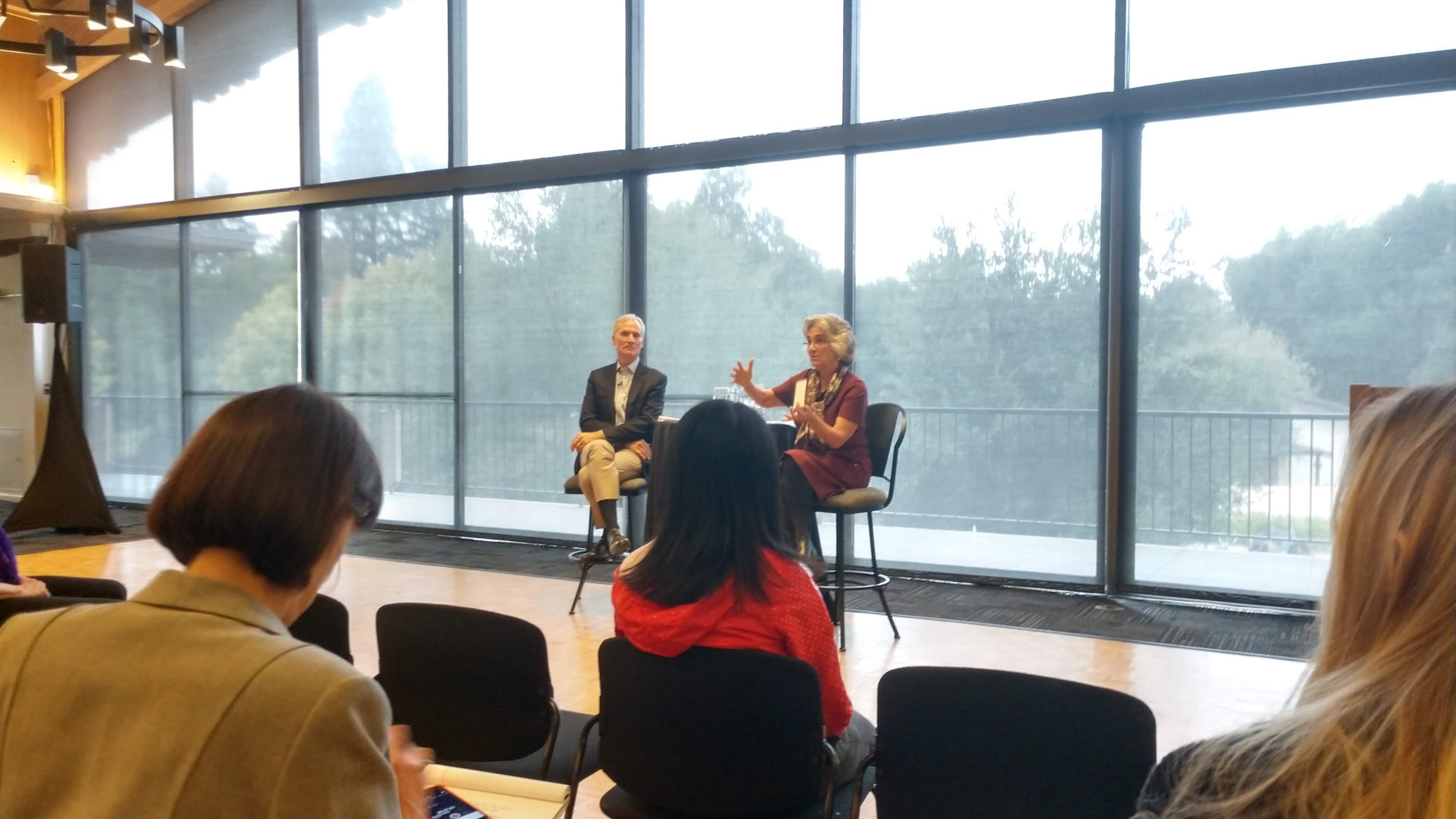President Marc Tessier-Lavigne and Provost Persis Drell discussed long range planning, graduate student access to dining halls and other issues during a town hall event at Tresidder Oak Lounge on Monday.
Tessier-Lavigne opened the event and welcomed the audience to the new academic year. He then reiterated Stanford’s long range planning initiatives, which were first announced in February. He highlighted the initiatives’ four main areas of focus: values, research, education and community.
According to Tessier-Lavigne, the University launched 19 initiatives total across the four areas of focus. Specially-tailored design teams and task forces spearhead each initiative.
According to Tessier-Lavigne, the design teams are focusing on a question of “How do you take a priority and turn it into an actionable plan?”
He also mentioned that — at every step of the process during long-range planning — the University is in touch with the Board of Trustees for approval. Before turning the floor to Drell, Tessier-Lavigne encouraged the audience to engage with the long-range planning process as well.
Drell’s remarks focused on two major points. First, she highlighted the importance of the Office of Student Affairs, led by Vice Provost Susie Brubaker-Cole. Drell mentioned that the office is under a new organizational structure and is continuing to work on a project called “Our Most Important Work,” aimed at addressing the most pressing issues for students.
“To address these means that we actually have to change in some ways both large and small,” Drell said. “I am doing everything I can to support the effort in Student Affairs. Student Affairs has never been more important at this University than it is right now.”
Drell’s second point was about engagement and climate. She noted three surveys that would be sent to different parts of the Stanford community starting next quarter. The first survey focused on engagement with staff. Drell stressed the importance of getting as many staff members as possible to respond to the survey.
“We need to hear from the people who might not be so comfortable with bold ideas,” Drell said. “We can’t just listen to those who feel comfortable being vocal.”
The second survey Drell mentioned is a climate survey focused on faculty and tenures, who Drell said have not been surveyed before. According to her, the survey will be focused on aspects of faculty life including hiring, workload, retention, diversity and sexual harassment.
Finally, Drell reaffirmed that Stanford will administer another campus climate survey to the student body. In response to feedback from an advisory committee, and the Stanford community at large, the survey will be in line with one administered by the American Association of Universities.
After Drell’s speech, both she and Tessier-Lavigne sat down to take questions from index cards submitted by the audience. The two received several inquiries about the status of graduate students eating at High Performance Education (HPE) dinner.
“The fact that graduate students felt excluded was a bit of a surprise that hadn’t been thought through,” Drell said. “This whole program is still in pilot, so you can expect it to continue to change and evolve and be responsive to students.”
She added that extending hours in the dining halls is expensive and that, although she does not make the decision alone, she personally does not support raising charges.
Drell was also asked about how the University plans to support its students, faculty and staff in light of the recent controversy surrounding Supreme Court nominee Brett Kavanaugh and his alleged sexual harassment of multiple women. Drell emphasized that there are already resources for support in place and urged anyone who might need those resources to contact the SARA Office, the Title IX Office and the confidential support team (CST).
Tessier-Lavigne spoke about the philosophy and structure of the design teams of the long-range planning initiative. He also discussed an initiative known as the Innovative Medicine Accelerator. According to Tessier-Lavigne, the initiative aims to aid the long and expensive process of turning a medical discovery into therapy, treatment or a cure for ailments.
“It’s always going to be hard but we can accelerate it,” he said. “The design team is being put together; the brochures are going to be announced later this week.”
Vice President for Human Resources Elizabeth Zacharias also answered several questions from the audience in a variety of topics including affordability, staff quality of life, information technology and data from previous campus surveys.
Contact Michael Espinosa at mesp2021 ‘at’ stanford.edu.
